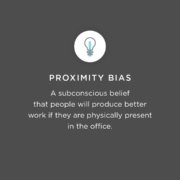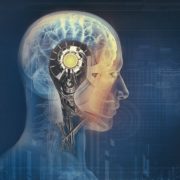Organisational Knowledge and Learning
Organisational learning in companies nowadays is simply seen as sharing existing knowledge. But this should not take us by surprise given the fact that the primary focus of universities and MBAs is just that. This type of approach can be seen in training programmes and leadership development seminars as well. The modus operandi is straight forward: an expert passes on what he or she knows with people who do not possess that information already. This technique is supposed to be feasible in numerous and various situations and social contexts.
Due to this learning approach, the 1990’s have seen quite a boom in ‘knowledge management systems’. The obvious focus of these systems is clear: efficiency at scale – i.e. making existent knowledge more accessible to people who need it. In the case of employees, it could help them discover the relevant know-how in order to improve their performance.
In today’s culture of knowledge sharing, people often tend to forget about how enriching creating ‘new knowledge’ can be. Companies are struggling to cope with the increasing number of unexpected situations that obviously cannot be found in manuals or textbooks, thus compelling leaders to act on the spot, to improvise with approaches that haven’t been tested. Thankfully, due to this process, new knowledge is being developed regarding how things should or should not work in ‘clear-cut situations’.
Explicit knowledge vs. Tacit knowledge
Today’s business world everything revolves around efficiency and how can it be measured and scaled properly. Given this specific need, the documentation regarding this matter was created in great detail so that every known situation was handled by specific actions. The best example in this scenario is the idea that all employees supposed to follow.
Nowadays, information moves at the speed of light and everything is changing constantly. Basically, the new knowledge that could be acquired comes as tacit knowledge. In layman’s terms, tacit knowledge is the information that people already have but find it difficult to articulate to themselves much less to other individuals. This type of knowledge derives from our first-hand experiences when confronted with new situations and is exceptionally valuable. If organisations can create environments in which tacit knowledge can be created and developed, workers could confront and learn enormously from the new situations created.
Workgroups vs. Individuals
The best way in which to ensure the success of tacit knowledge is to create small workgroups. In this scenario, people from diverse backgrounds and with distinct skills and perspectives can create a powerful bond, based on trust in order for them to be comfortable to try out new things, to easily accept constructive criticism and collaboratively work towards the common good. The potential within small workgroups is tremendous. If two or more workgroups are connected through a network or project with other workgroups, seeking advice and confronting new circumstances can go beyond the experience offered by an individual workgroup.
Organisations may have an overwhelming proportion of smart people within their ranks, but managers should always take into account the fact that there are a lot of smart people out there, that do not work for them. It is imperative that employees gather experience through their own perception.
Learning and Unlearning
The general act of learning is seen as the accumulation of information over time. Basically, you are just pouring information over the pre-existing knowledge you already have acquired. But things are not that simple. In the ever-changing global market, it has become mandatory for people to be willing to unlearn and even develop such an ability. Our principles and ideas are being challenged on a daily basis so it is imperative that we understand that what may have worked in the past may no longer be relevant today. If we try to hold on strongly to these beliefs without questioning their relevance from time to time, then we will never be open to new ideas, approaches that may be more feasible for the foreseeable future.
Skills vs. Capabilities
Usually, when we start working at a new job we focus a lot on acquiring the necessary set of skills needed in order to perform at the desired level. The moment we are certain those skills have been integrated, productivity and success is just around the corner. However, everything around us sometimes feels like it is passing on fast-forward, thus skills have a shorter lifespan. While skills are important in order to progress and assure your professional success, it is recommended that the focus shifts towards acquiring capabilities that could accelerate the learning process. These capabilities range from willingness, imagination and creativity to curiosity, critical thinking and emotional intelligence. If organisations worldwide understand that new forms of learning are required to adapt. Re-thinking strategies and operations will be a must.
This is where Great People Inside comes to your aid. Our online platform offers the best solutions and tools for your company to thrive in every type of industry and any possible situation your organisation may find itself. In terms of lowering your employee turnover rates, we recommend our GR8 Full Spectrum assessment for hiring and 360° Survey for retention. Finding the right talent, the best fit for the job and your organisation can be a very challenging task. It requires deep knowledge of your own organisation’s culture and a keen understanding of the candidate’s personality, strengths, interests, work style and other characteristics. Our technology and solutions will do the work for you, helping you find employees who can flourish and reach the highest performance required to constantly bring your company forward.
Request a free demo:
Sources:
https://hbr.org/1993/07/building-a-learning-organization
http://www.participatorymethods.org/method/organisational-learning
http://www.innovationmanagement.se/imtool-articles/35-ways-to-cultivate-innovation-and-organizational-learning/
https://hbr.org/2017/08/help-employees-create-knowledge-not-just-share-it





 Great People Inside
Great People Inside 





